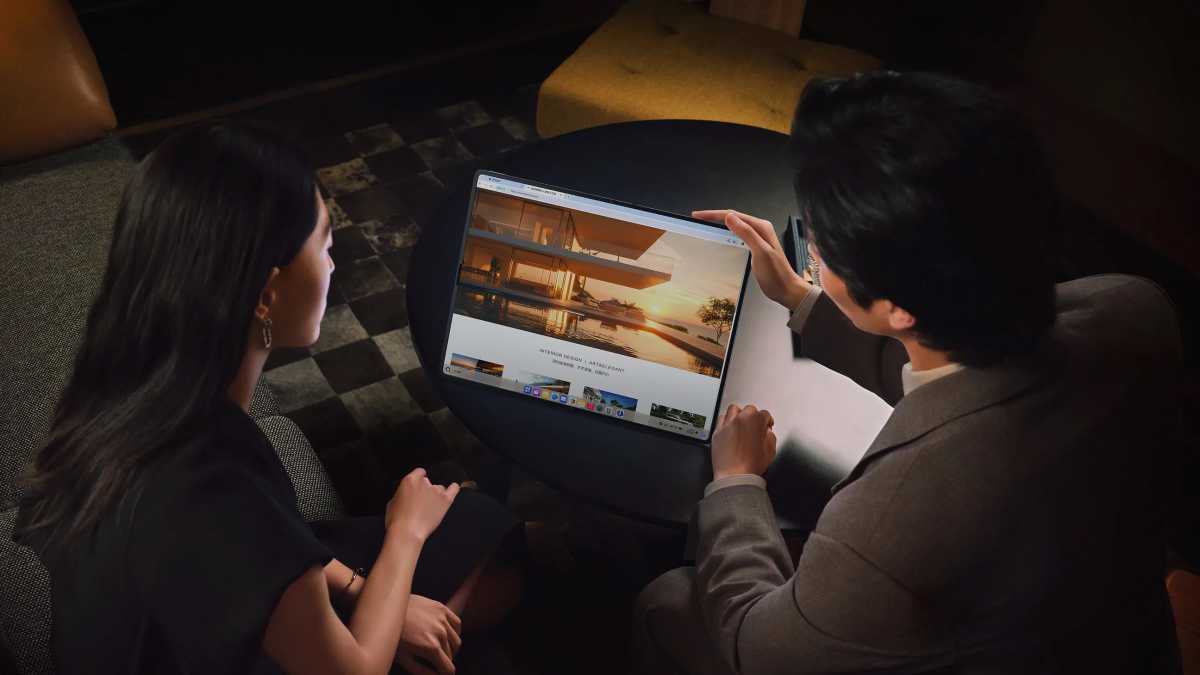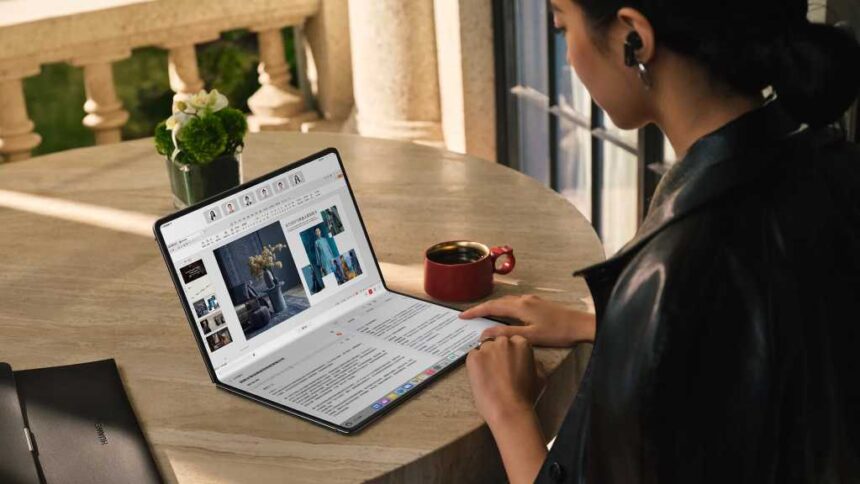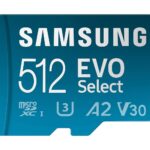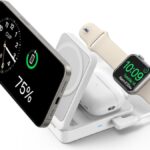Huawei has announced a new foldable tablet-laptop hybrid, and all I can think of is: why didn’t an Android tablet manufacturer get there first?
The Huawei MateBook Fold Ultimate has been unveiled in China, and it’s a thing of genuine beauty.
Taking the form of an 18-inch tablet that can fold in half to become a neat 1.16kg 13-inch laptop (with virtual keys on the lower portion), it looks to be the ultimate shape-shifting productivity and media device.
The key to foldable tablet success
Not that my initial response to this new device was wholly positive. In fact, it was closer to “that’s cool, but you’ll pry my tactile keys from my cold, dead hands”.
No one actually gets real work done on a touchscreen. Not this Geriatric Millennial, at any rate.
But I needn’t have been so prematurely dismissive. It turns out the Huawei MateBook Fold Ultimate can be put to use as a full productivity powerhouse, unfurling to full 18-inch size and propping up with its built-in stand. You can then whip out the custom 5 mm-thick, 290g wireless keyboard and use that to type.
And what a beauty that 18-inch display looks to be. It’s a dual-layer OLED, which we’ve seen previously on the iPad Pro M4, meaning it’s super bright (1,600 nits) and vibrant. It also sports a sharp 3296 x 2472 resolution – that’s not far shy of 4K.
Huawei
Why we need an Android version of the Matebook Fold Ultimate
We don’t know about the chip that’s powering this hybrid device just yet (though there is 32GB of RAM and a 1TB or 2TB SSD), and that could prove the sticking point. Huawei has been badly hampered by Western sanctions when it comes to the performance of its devices over recent years.
That just strengthens the feeling that a top Android manufacturer – Samsung or Google, perhaps – really should have come up with a similar product by now.
Imagine a foldable version of the Google Pixel Tablet running on Google’s tablet-optimised Android skin, or even ChromeOS. It could have been the device that finally brought Google into the Android tablet market in a meaningful way.
Even more mystifying is the lack of a Samsung equivalent. We know that the company has been experimenting with such foldable tablet technology for years now, and it’s had the DeX hybrid desktop OS in place for even longer.

Huawei
Enter Apple (eventually)
It’s not too late for such a manufacturer to arrive with their own take on a foldable tablet, of course. For all the appeal of Huawei’s hardware, its ongoing troubles with US authorities mean that it’s never going to make a dent in Western markets with such a device.
One key player who could offer a compelling take on this form factor is Apple. Rumour has it that the company has just such a product on its release roster.
As we’ve come to appreciate, where Apple goes, other major manufacturers tend to follow. However, with a rumoured release date of ‘by 2028’, it may be a while before Huawei’s concept reaches its full potential, and that’s a shame.
Read the full article here












